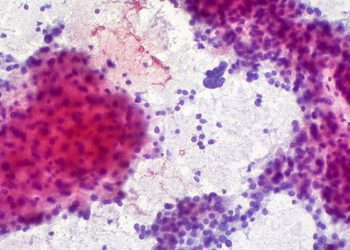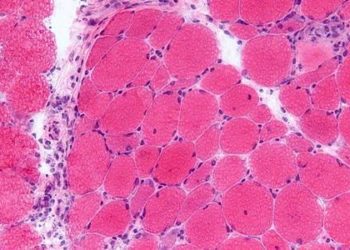Quick Take: Pembrolizumab Versus Chemotherapy for Previously Untreated, PD-L1-Expressing, Locally Advanced or Metastatic Non-Small-Cell Lung Cancer (KEYNOTE-042)
Pembrolizumab is a monoclonal antibody against programmed cell death protein 1 (PD-1). Previous studies have shown that pembrolizumab is effective in prolonging survival in advanced non-small-cell lung cancer (NSCLC) with a PD1-ligand (PD-L1) tumor proportion score (TPS) of 50% or greater. In this randomized, open-label, phase 3 study, pembrolizumab was investigated for its efficacy in prolonging survival in locally advanced or metastatic NSCLC with a PD-L1 TPS of 1% or greater. Patients were included in the study if they had previously untreated locally advanced or metastatic NSCLC, expressed PD-L1 as above, had an Eastern Cooperative Oncology Group (ECOG) performance score of 0 or 1, and did not have a sensitizing EGFR mutation or ALK translocation (n=1,274). They were randomized to receive either pembrolizumab (200 mg every 3 weeks for up to 35 cycles) or the investigator’s choice of platinum-based chemotherapy (4-6 cycles). Analysis was performed on three separate groups, those with PD-L1 TPS of 50% or greater, 20% or greater, and 1% or greater. Researchers found that pembrolizumab prolonged overall survival in all three analyses, as compared to chemotherapy, yielding a hazard ratio for death of 0.69 in those with 50% or greater PD-L1 TPS (95% CI 0.56 to 0.85, p=0.0003), 0.77 in those with 20% or greater PD-L1 TPS (95% CI 0.64 to 0.92, p=0.0020), and 0.81 in those with 1% or greater PD-L1 TPS (95% CI 0.71 to 0.93, p=0.0018). Treatment-related adverse events that were grade 3 or higher were significantly less common in the pembrolizumab group (18%), as compared to the chemotherapy group (41%). Similar treatment-related death rates occurred. Investigators therefore concluded that pembrolizumab is an effective first-line therapy in patients with metastatic or locally advanced NSCLC with greater than 1% PD-L1 TPS who do not have other sensitizing mutations or translocations.
Click to read the study in Lancet
Image: PD
©2019 2 Minute Medicine, Inc. All rights reserved. No works may be reproduced without expressed written consent from 2 Minute Medicine, Inc. Inquire about licensing here. No article should be construed as medical advice and is not intended as such by the authors or by 2 Minute Medicine, Inc.







